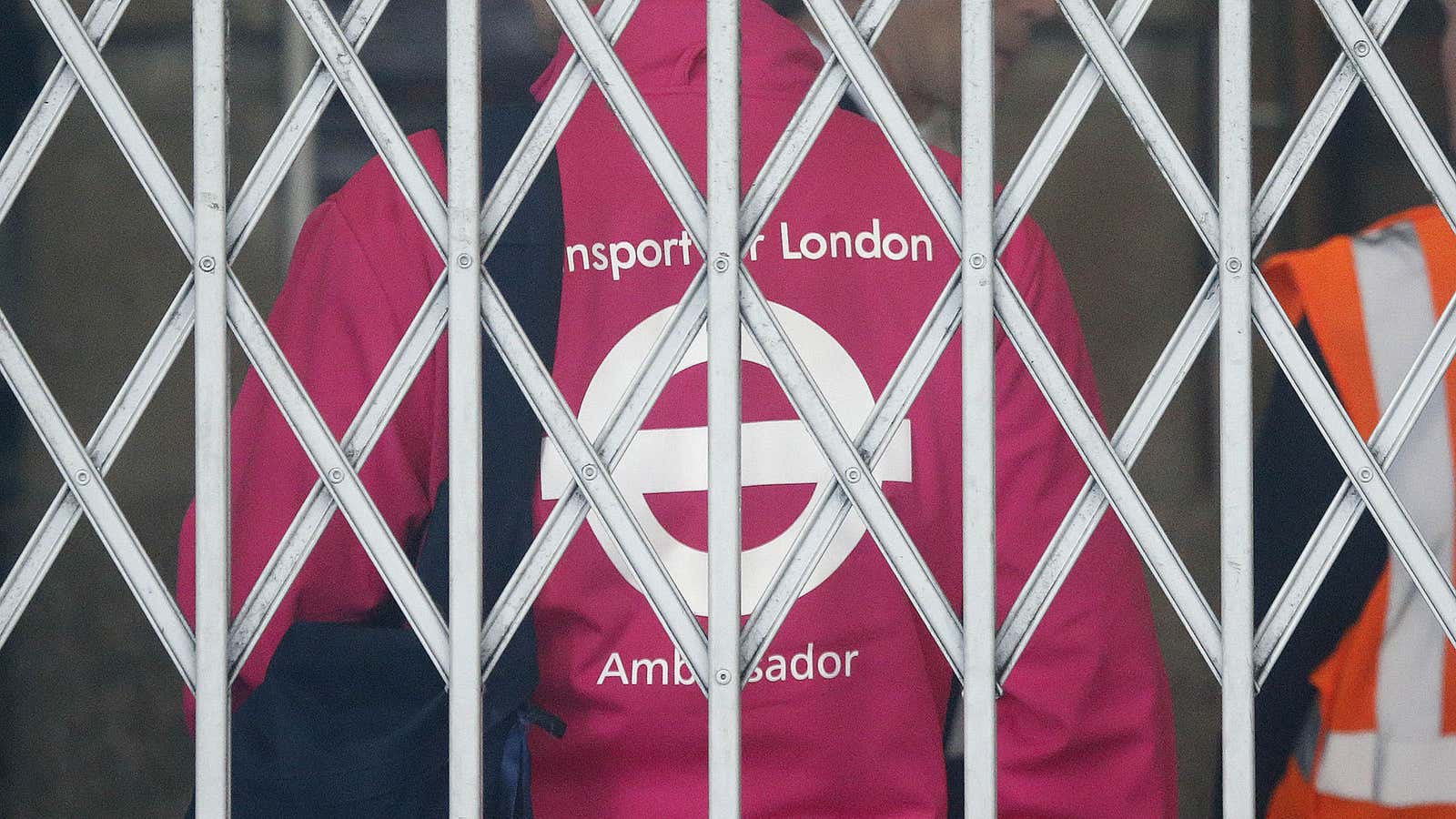Londoners are bracing themselves for yet another commuting nightmare. Less than a month after the last Tube strike, union workers for the underground system are going on another 24-hour strike starting the evening of Aug. 5.
And, yet again, news publications will claim what a disaster the strike will be on London’s economy.
“The strike on 9 July is said to have cost London’s economy £300 million [$469 million], enough to employ a single Tube driver for the next 6,000 years,” according to the BBC. This figure comes from the Federation of Small Businesses (FSB), an industry group. But as Quartz reported earlier, nobody really knows how much of an impact the Tube strike has on the economy.
Another number that is frequently quoted—a much more sober £50 million per day—is based on a 2007 survey of just 315 businesses conducted by the London Chamber of Commerce and Industry (LCCI), a business lobby group.
Research based on a small sample of biased respondents speaking many years ago is not the most rigorous way to assess costs, according to Alf Crossman, an industrial-relations expert at the University of Surrey. The true economic impact of such strikes is hard to calculate accurately, but that doesn’t stop lobby groups from throwing big numbers around.
For instance, the 2010 national rail strike in the UK was claimed to have cost the economy £600 million per day. The source of that figure was a quote from a spokesperson at the FSB, which was again based on many thinly-sourced assumptions.
Yet others use such figures, without examination, as evidence of support for their own cause. For instance, Conservative members of the Greater London Authority used LCCI’s figures to claim that, between 2005 and 2011, 20 days of Tube strikes cost the economy £1 billion.
The most recent estimate by the Centre for Economics and Business Research, a London-based think tank, is that Tube strikes cost the city economy around £10 million per day. That, according to the group’s executive chairman Douglas McWilliams, has fallen in the past two decades because of the rise of remote working facilitated by new technologies. More people can now work from home without much loss in productivity.
This estimate is based on GVA, or gross value added, by London to the national economy. After accounting for lower activity on weekends and bank holidays, London probably produces about £1 billion in economic output daily. During a Tube strike, McWilliams writes, “I would be surprised if the impact is as much as a loss of GVA of 1%.”
